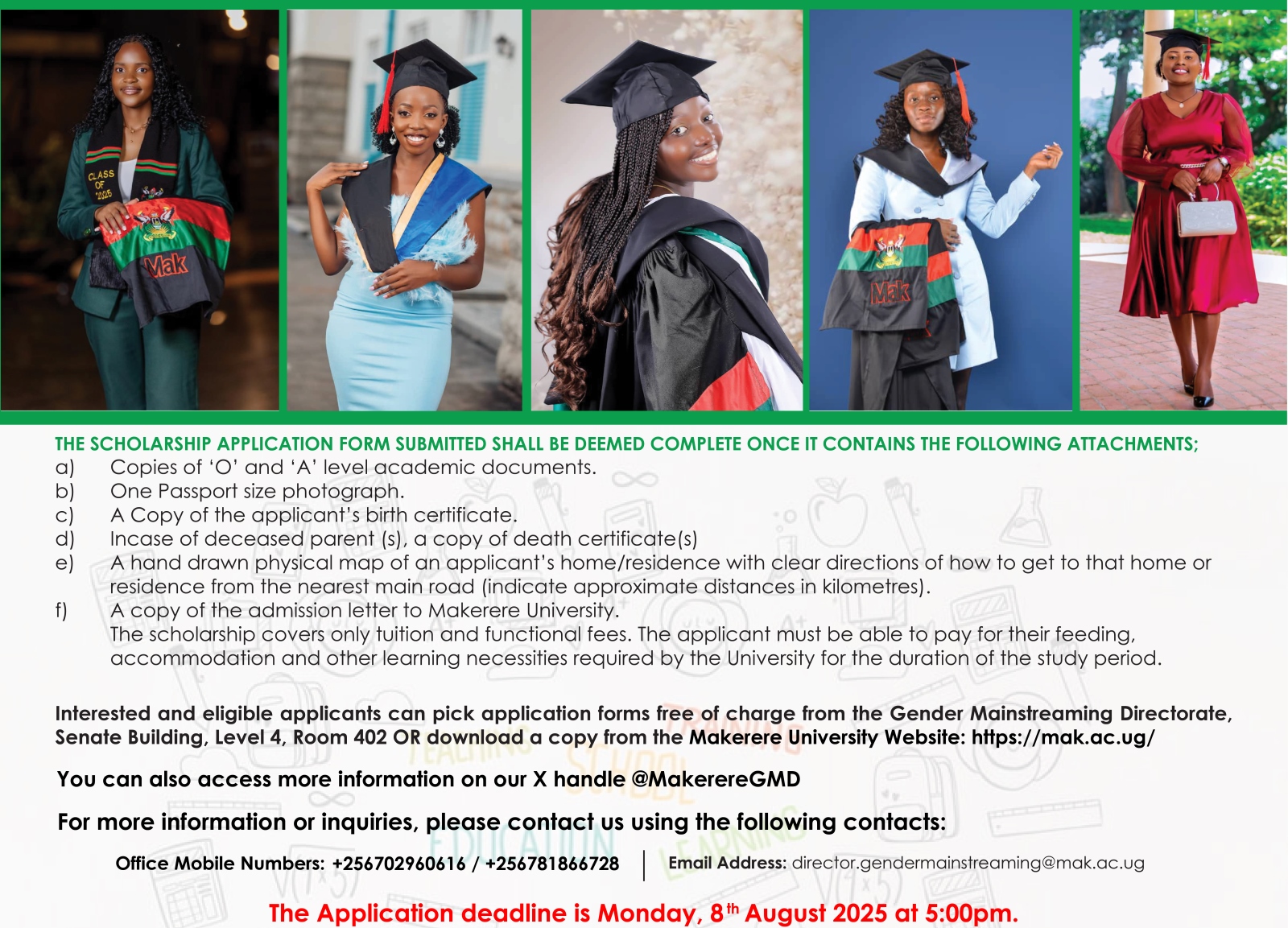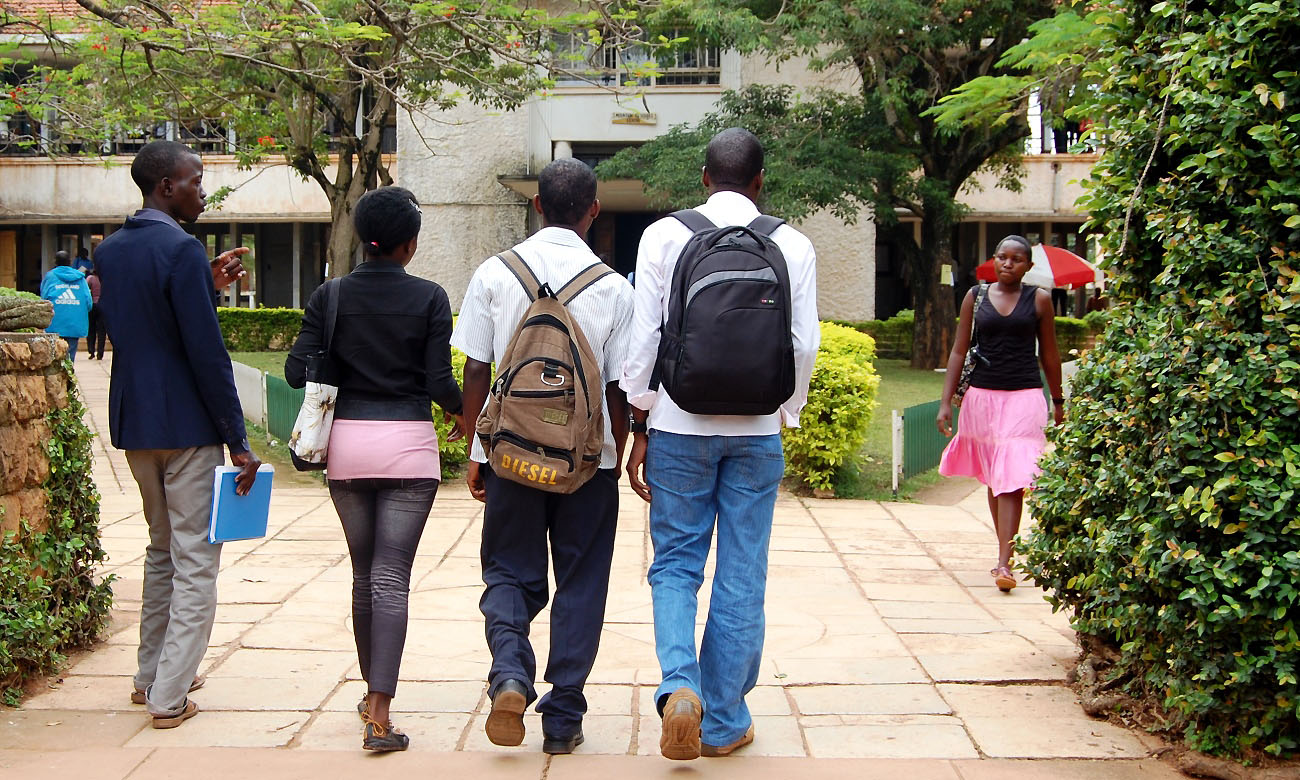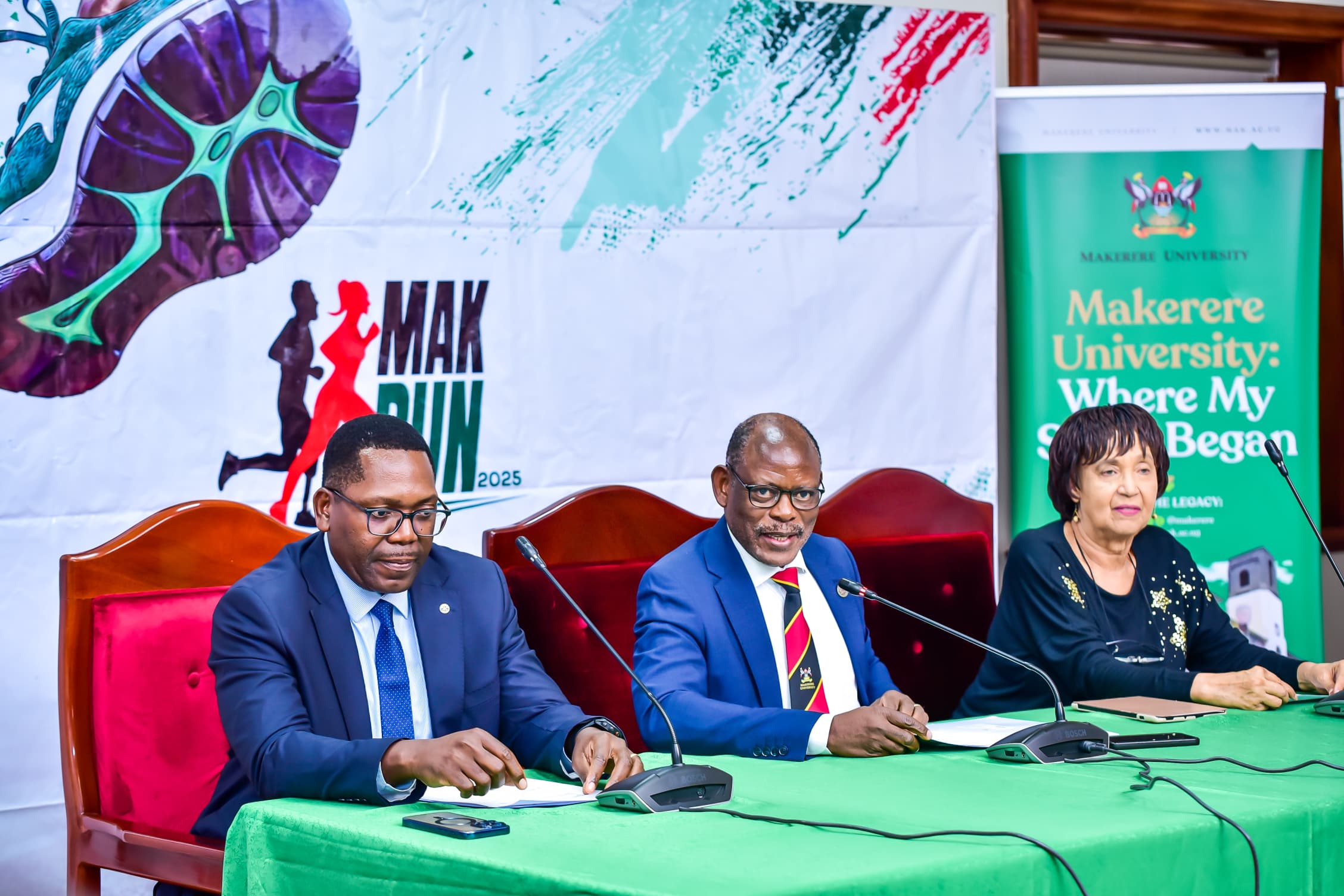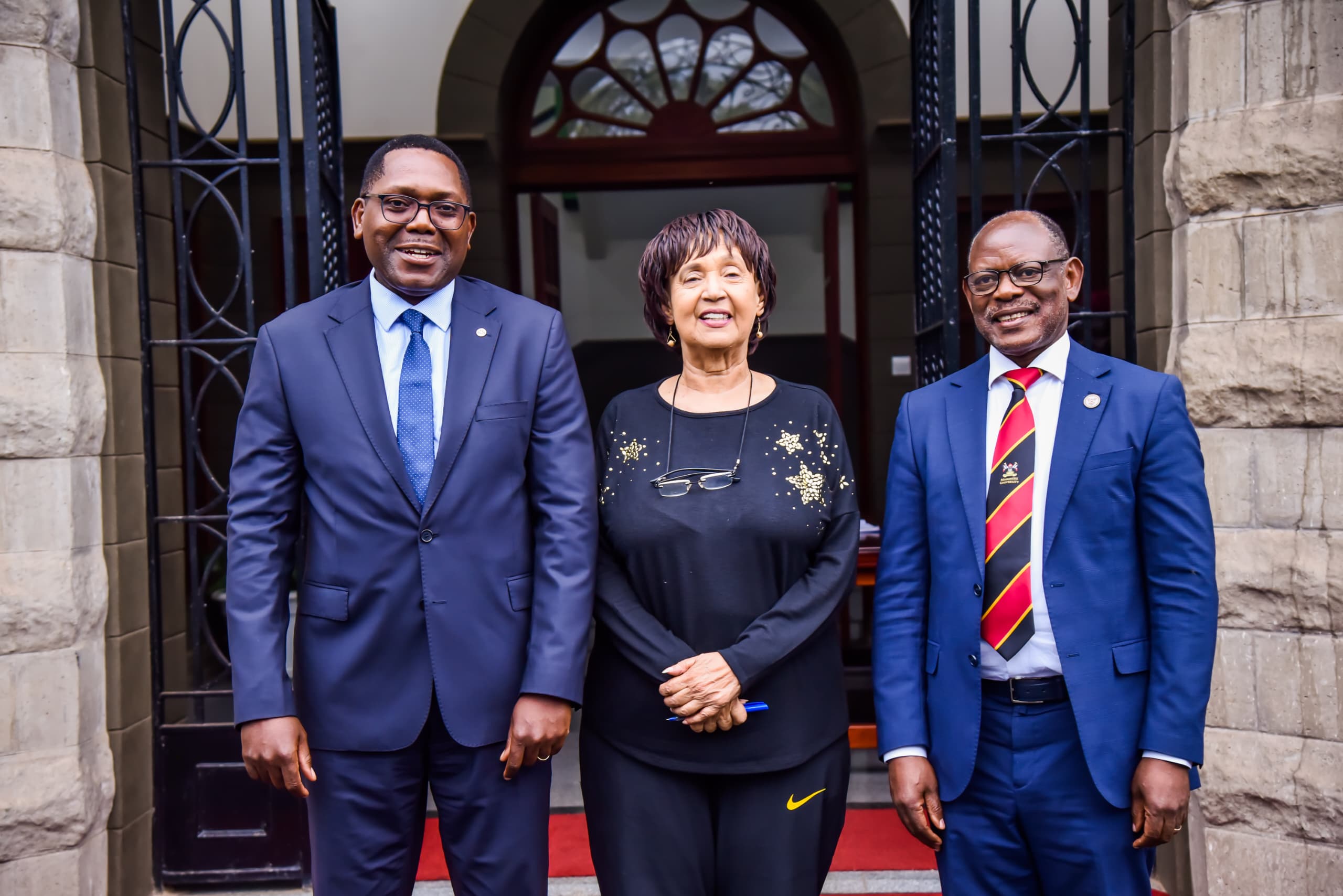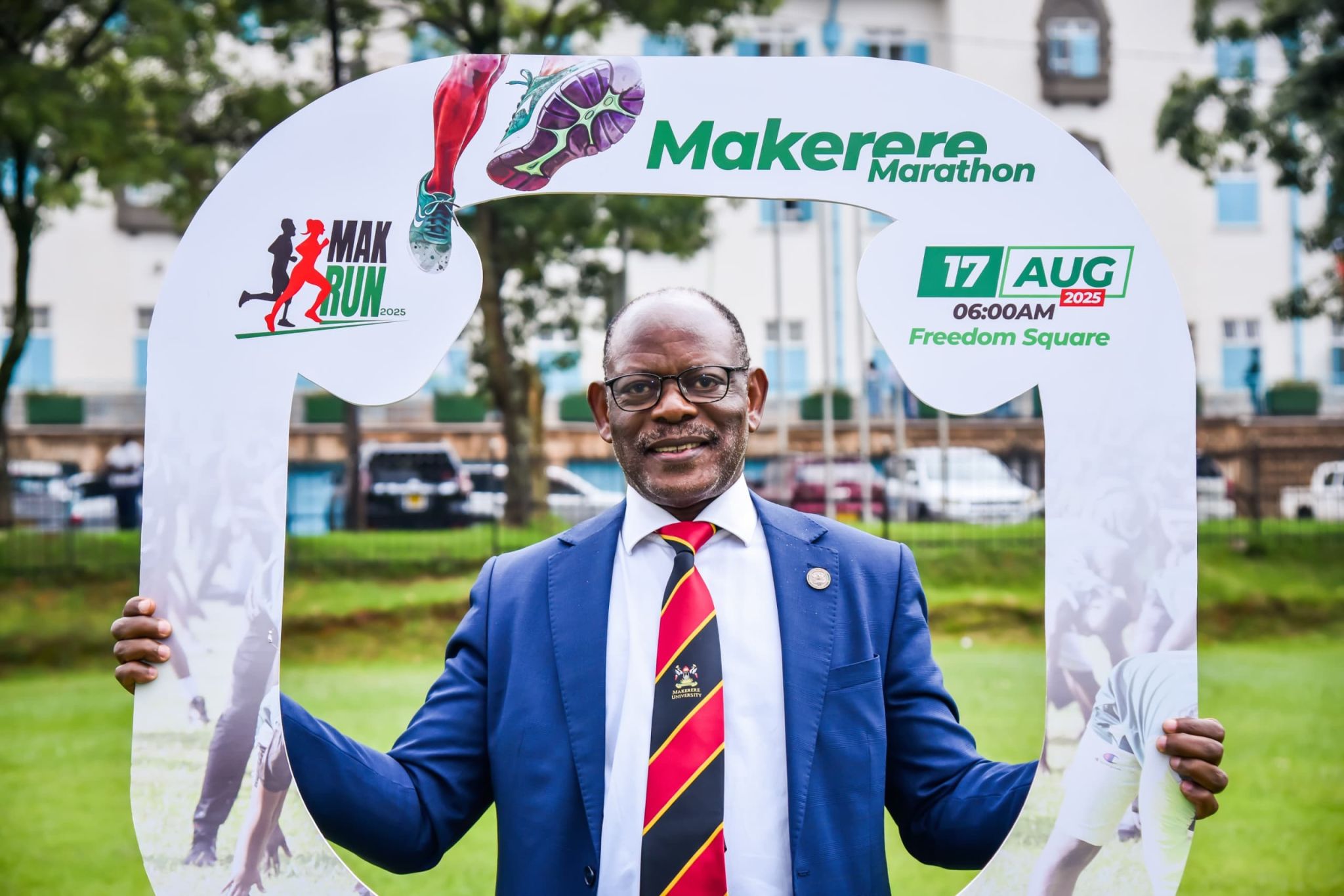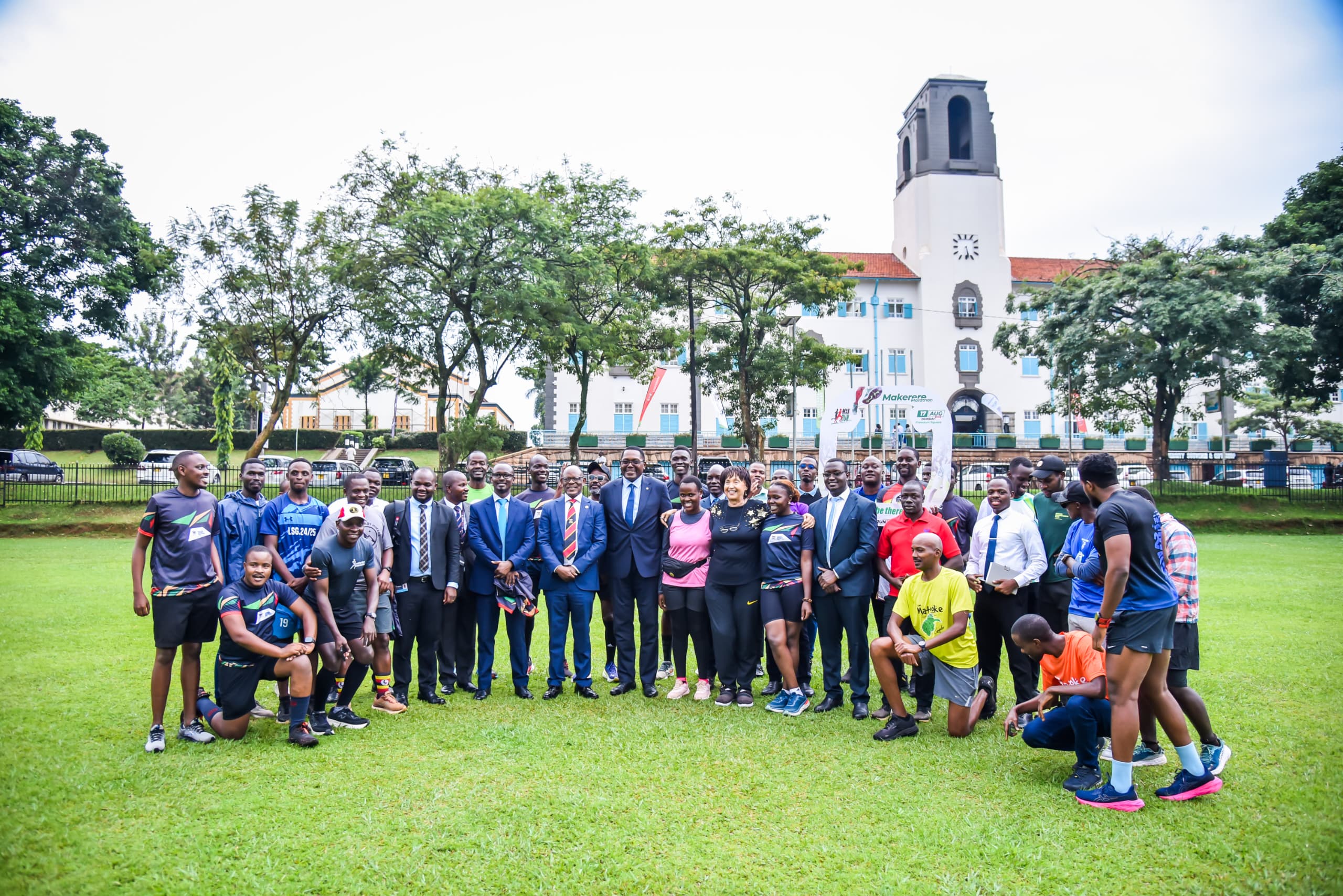The Second International Conference on Advances in Engineering and Technology (AET2011, 31st Jan – 2nd Feb 2011) was a follow up on the 1st International Conference on Advances in Engineering and Technology that was held in 2006.
The conference provided a forum for scientists, researchers, professionals and industry leaders from all over the world and the African region in particular, to exchange ideas on current scientific advances in engineering and technology.
Below are some of the papers that were presented;
Abaho et al, Climate change and its Impacts on River Flows and Recharge in the Sezibwa Catchment, Uganda: pdf, ps
Argen et al, Cost and Time Overrun in Construction Projects in a Multicultural Setting: pdf, ps
Akinlabi et al, Effect of Travel speed on Joint properties of Dissimilar Metal Friction Stir Welds: pdf, ps
Alinaitwe, Contractors’ Perspective on Critical Factors for Successful Implementation of Private Public Partnerships in Construction Projects in Uganda: pdf, ps
Anyala et al, Assessment of the Impact of Climate Change on Road Maintenance: pdf, ps
Anyiko et al, Investigation of the Suitability of Recycled Carpet Fibre as a Soil Reinforcement Material: pdf, ps
Apolot et al, An Investigation into the Causes of Delay and Cost Overrun in Uganda’s Public Sector Construction Projects: pdf, ps
Aulin et al, Issues Confronting Women Participation in the Construction Industry: pdf, ps
Auziane et al, Design of Weather Station and Measurement Equipment for Assessment of Buildings Energy Use in Mozambique: pdf, ps
Baloi, Feasibility Analysis of Timber Houses in Mozambique: pdf, ps
Chipofoya et al, Evaluation of Wastewater Treatment Technologies at Blantyre WWTW, Malawi, in the Context of the ED-WAVE Tool: pdf, ps
Chipofoya et al, Evaluation of case-based design principles and the decision tree selection process in the design of Soche wastewater treatment plant, Blantyre, Malawi: pdf, ps
Dawoud et al, Security in Embedded Systems: Design Challenges: pdf, ps
Dawoud et al, A Proposed Public Key Management Scheme for Mobile Ad Hoc Networks: pdf, ps
Dawoud et al, A New Threshold Multisignature Scheme for Mobile Ad Hoc Networks: pdf, ps
Dawoud et al, Trust Establishment in Ad Hoc Networks by Certificate Distribution and Postponed Verification: pdf, ps
Ecuru et al, Integrating Science, Technology and Innovation in National Development Planning Process: the Case of Uganda: pdf, ps
Ikponmwosa et al, Strength Characteristics of Concrete Beams with Cement Partially Replaced by Uncalcined Soldier-Ant Mound Clay: pdf, ps
Irumba et al, Modeling the Dynamics of Housing and Population Growth in Kampala City: pdf, ps
Kakitahi et al, Towards development of a whole life costing based model for evaluation of building designs: pdf, ps
Kalanzi et al, Evaluation of Waste Minimization Alternatives for the Galvanizing Production Process: A case study of Uganda Baati Ltd.: pdf ,
Kanai et al, Adaptive PID Dc Motor Speed Controller With Parameters Optimized with Hybrid Optimization Strategy: pdf, ps
Kariko-Buhwezi et al, Challenges to the Sustainability of Small Scale Biogass Technologies in Uganda: pdf, ps
Kasembe et al, Irreversibilities in High Temperature Biomass Gasification: pdf, ps
Katende et al, A Study into the Factors Hindering Development of the Construction Industry in Uganda: pdf, ps
Kayaga et al, Using Economic Instruments for Water Resources Management in the City of the Future: Case Studies from Spain and Uganda: pdf, ps
Kayondo et al, Algorithmic Incorporation of Geographical Information Technologies in Road Infrastructure Maintenance in Uganda: pdf, ps
Kirabira et al, Beneficiation and Evaluation of Mutaka kaolin: pdf, ps
Kizza et al, Estimating Areal Rainfall over the Lake Victoria and its Basin using Ground-based and Satellite Data: pdf, ps
Kombe et al, High Free Fatty Acid (FFA) Feedstock Pre-Treatment Method for Biodiesel Production: pdf, ps
Kudenyo, Rainfall Runoff Model for River Sosiani's Catchment: pdf, ps
Kwesiga, Contribution of Industrial Research in Transformation of Developing Countries: pdf, ps
Lubwama et al, Wear Mechanisms of Piston Seals in Reciprocating Hand Pumps for Rural Drinking Water Supply: pdf, ps
Lugano et al, Modellign the Influence of Moisture Content in High temperature Gasification (HTAG) of Biomass: pdf, ps
Lugano et al, Effects of Moisture Content in Biomass Gasification: pdf, ps
Mashingo et al, Characteristic Properties of Tanzanian Coal for High Temperature Gasification: pdf, ps
Mhilu et al, Thermal Degradation Characteristics of Blends of Tanzanian Bituminous Coal and Coffee Husks: pdf, ps
Misginna et al, Yield and Chemical Characteristics of Charcoal Produced by TLUDND Gasifier Cookstove Using Eucalyptus Wood as Feedstock: pdf, ps
Mkumbwa et al, A Cost Effective Solar PV Power Solution for Rural Household in Tanzania: The case of Kondoa District: pdf, ps
Mukasa et al, Role of Intangible Assets in the Adoption of Advanced Manufacturing Technologies (AMT’s) in Developing Countries: Case Study of Uganda: pdf, ps
Mukiibi, The Effect of Urbanisation on the Housing Conditions of the Urban Poor in Kampala, Uganda: pdf, ps
Mukiibi, An Evaluation of Factors that have Influenced Housing Policy Development in Uganda: pdf, ps
Mukwaya et al, Saturation Flow Rate for Through-Traffic at Signalized Junctions in Kampala: pdf, ps
Musaazi, From R&D to Entrepreneurship: pdf, ps
Musinguzi et al, Small-scale CHP for Rural Electrification in Uganda – The State-ofthe- art and Prospective Development: pdf, ps
Musinguzi, Application of Spatial Technologies and Field Techniques to Assess the Status of Wetlands in Lake Kyoga Basin in Uganda: pdf, ps
Musinguzi, A Tree Model for Diffusion of Spatial Data Infrastructures in Developing Countries: pdf, ps
Mutambi et al, Transferring Best Practices for Uganda Technological Innovation and Sustainable Growth: pdf, ps
Mutesi et al, Application of ICT in the Construction Industry in Kampala: pdf, ps
Mutesi et al, Analysis of Storage-Estimation Techniques for Optimal Rainwater Reservoir Sizing: pdf, ps
Mutikanga et al, Investigating thte Impact of Utility Sub-metering on Revenue Water: pdf, ps
Mutikanga et al, Decision Support Tool for Optimal Water Meter Replacement: pdf, ps
Muzenda et al, The Effect of Zinc Ion Concentration and pH on the Leaching Kinetics of Calcined Zinc Oxide Ore: pdf, ps
Muzenda et al, Phase Equilibrium of Volatile Organic Compounds in Silicon oil Using the UNIFAC Procedure: An Estimation: pdf, ps
Mwakali et al, Local Content in the Oil and Gas Industry: Implications for Uganda: pdf, ps
Mwebesa et al, Simulating Bearing Capacity Failure of Surface Loading on Sand Using COMSOL: pdf, ps
Mwesige et al, Estimating The Critical GAP and FOLLOW-UP Headway at Roundabouts in Uganda: pdf, ps
Mwesige et al, Identifying and Fixing High Traffic Crash Locations in the Road Network in Uganda: pdf, ps
Mwesige et al, Opportunities for Generating Electricity from Municipal Solid Waste: Case of Kampala City Council Landfill: pdf, ps
Nalumansi et al, Determining Productivity of Masons for both Stretcher and Header Bonding on Building Sites: pdf, ps
Nawangwe, The Architectural Transformation of Makerere University Neighbourhoods during the Period 1990-2010: pdf, ps
Ngirane-Katashaya et al, An Innovative Intervention by a Multiplicity of Surface and Underground Interlinked Dams/Weirs, Sand Storages, and Sub-Geological Engineering to Solve Karamoja's Perennial Water Stress: pdf, ps
Nnaggenda et al, User Participation in the Eyes of an Architect and Gendered Spaces: pdf, ps
Nturanabo et al, Performance Appraisal of the Casamance Kiln as a Replacement to the Traditional Charcoal Kilns in Uganda: pdf, ps
Nyeko-Ogiramoi et al, Assessment of the impact of climate change on extreme precipitation and temperature events over the upper River Nile basin: pdf, ps
Ocen et al, An Analysis of the Competitiveness of Local Construction Contractors in Uganda: pdf, ps
Oke et al, Value Management in the Nigerian Construction Industry: Militating Factors and the Perceived Benefits: pdf, ps
Okello et al, Optimising Densification Condition of Coffee Husks Briquettes Using Response Surface Methodology: pdf, ps
Okidi et al, Gender Research as Knowledge Resource in Technology and Engineering: pdf, ps
Okidi, Hybrid E-Learning for Rural Secondary Schools in Uganda: Co-Evolution in Triple Helix Processes: pdf, ps
Okidi, Longitudinal Analysis of Performance of Ugandan Rural Advanced- Level Students in Physics Practicals: pdf, ps
Okodi et al, Approximate Large Deflection Analysis of Thin Rectangular Plates under Distributed Lateral Line Load: pdf, ps
Okodi et al, Exact Large Deflection Analysis of Thin Rectangular Plates under Distributed Lateral Line Load: pdf, ps
Okou et al, An Opportunity to Enhance Rural Electrification in sub-Saharan Africa through the Local Manufacture of Flywheel Energy Storage System: pdf, ps
Okullo et al, Transesterification Reaction Kinetics of Jatropha Oil for Biodiesel Production: pdf, ps
Omolo et al, Perspectives on City Planning of Post Independence Kampala: The Emergence of the Metropolitan Growth Model and the Hexagonal Cell: pdf, ps
Openy et al, Appropriate Technology for Sustainable Rainwater Harvesting Based on Optimal Rainfall Estimates: pdf, ps
Otim et al, The Causes and Impact of Uncompleted Buildings; Studies in Kampala City: pdf, ps
Otim et al, Cost Control Techniques Used On Building Construction Sites in Uganda: pdf, ps
Otim et al, Design of Biogas Plant for Rural Households in Uganda (Case Study: Apac District): pdf, ps
Rodrigues et al, Influence of Solar Shading on Indoor Climate of Buildings: pdf, ps
Rodrigues et al, Influence of Building Orientation on the Indoor Climate of Buildings: pdf, ps
Rwabuhungu, Specific Transverse Distribution of Nutrients and its Major Impact on the Sustainable Development of the Lake Kivu Methane Gas Exploitation: pdf, ps
Sebitosi et al, The Smart grid: adopting new concepts for infrastructure to power Africa’s emerging industrial revolution: pdf, ps
Semambya, Recycling of Burnt Clay Rubble as Structural Concrete: pdf, ps
Semuwemba et al, Determining the Reaeration Coefficient and Hydrodynamic Properties of Rivers Using Inert Gas Tracers: pdf, ps
Semwogerere et al, Analysis of Some Existing Erosion and Deposition Models: pdf, ps
Senfuka et al, Options for Improvement of the Ugandan Iron and Steel Industry: pdf, ps
Ssengendo et al, Geoid Determination In Uganda: Current Status: pdf, ps
Stack et al, Context-Sensitive Maintenance Management using Mobile Tools: pdf, ps
Swart, Modeling a Single-sideband Transmitter in SIMETRIX for Instructional Purposes: pdf, ps
Tayebwa et al, Structural Consideration in Design of Reinforced Concrete Slabs with Openings: pdf, ps
Tickodri-Togboa, On the Contribution of Victoria Nile River Discharge to the Hydrological Performance of East Africa's Lake Victoria: pdf, ps
Tumwesigye, Urban flood modeling: beyond the preserve of developed countries: pdf, ps
Tumwesigye-omwe, A Study of the Use of Ground Investigation Reports during Foundation Design in Kampala: pdf, ps
Twite et al, Assessment of Natural Adhesives in Banana Leaf Composite Materials for Architectural Applications: pdf, ps
Uwase et al, Interactive Tools for Learning Sensor Network Basics: pdf, ps
Vestbro, Impacts of Urbanisation in Low-Income Countries: pdf, ps
Viljoen et al, Energy Management of a Solar/Hydrogen Driven Power Plant: pdf, ps
Wamuziri, Innovative Models for Procurement of Major Infrastructure Projects in Development: pdf, ps
Zziwa et al, Strength Characterisation of Timbers for Building Construction in Uganda: pdf, ps

 Education2 weeks ago
Education2 weeks ago
 General1 week ago
General1 week ago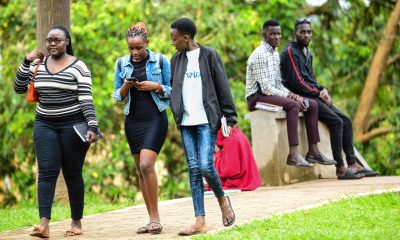
 General2 weeks ago
General2 weeks ago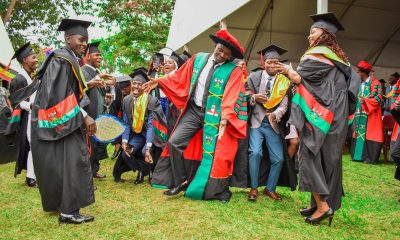
 General2 weeks ago
General2 weeks ago
 General6 days ago
General6 days ago
